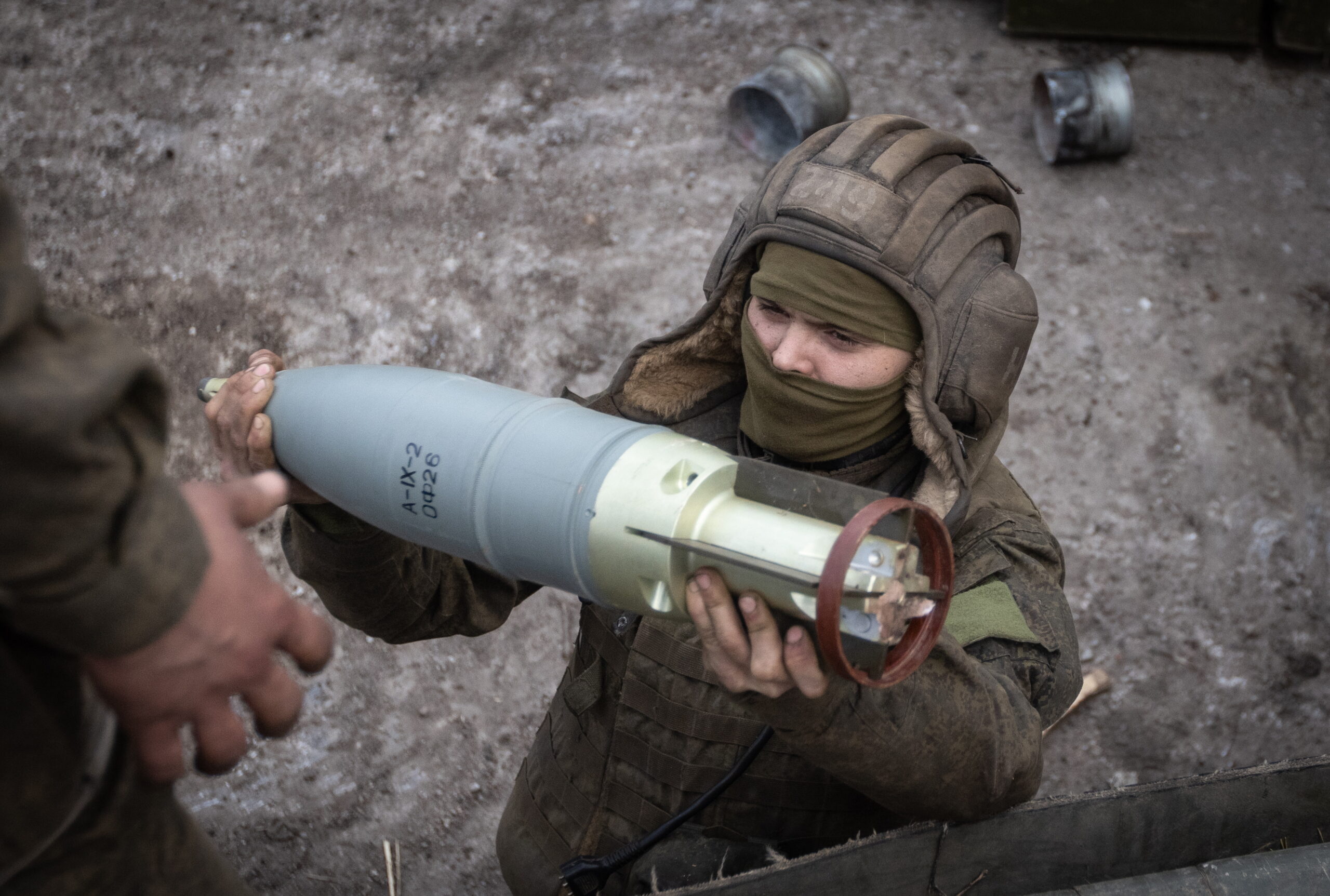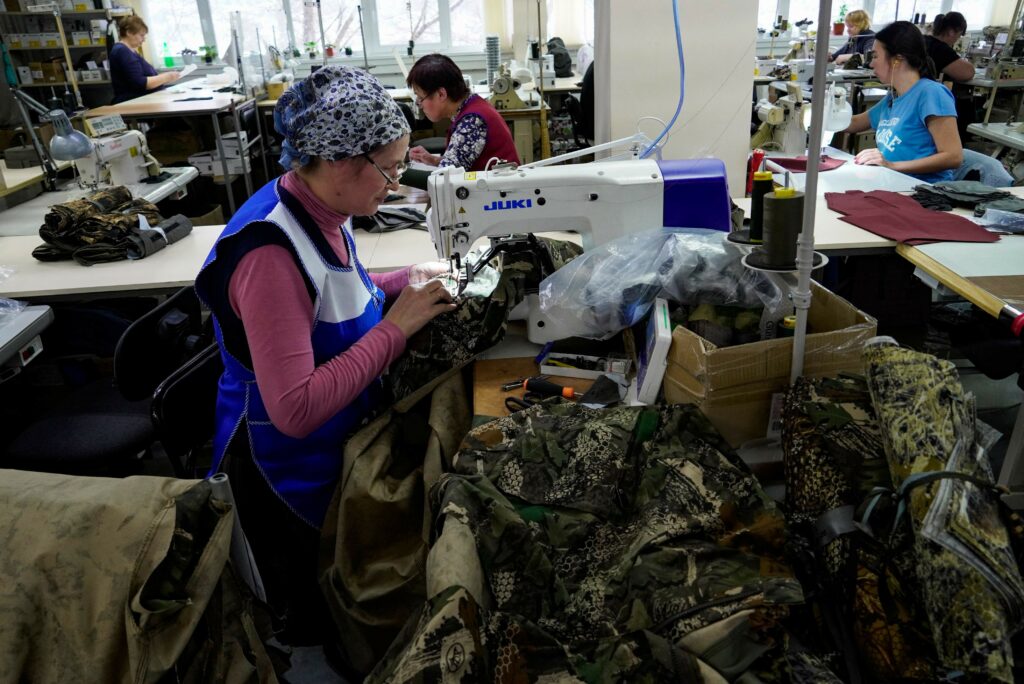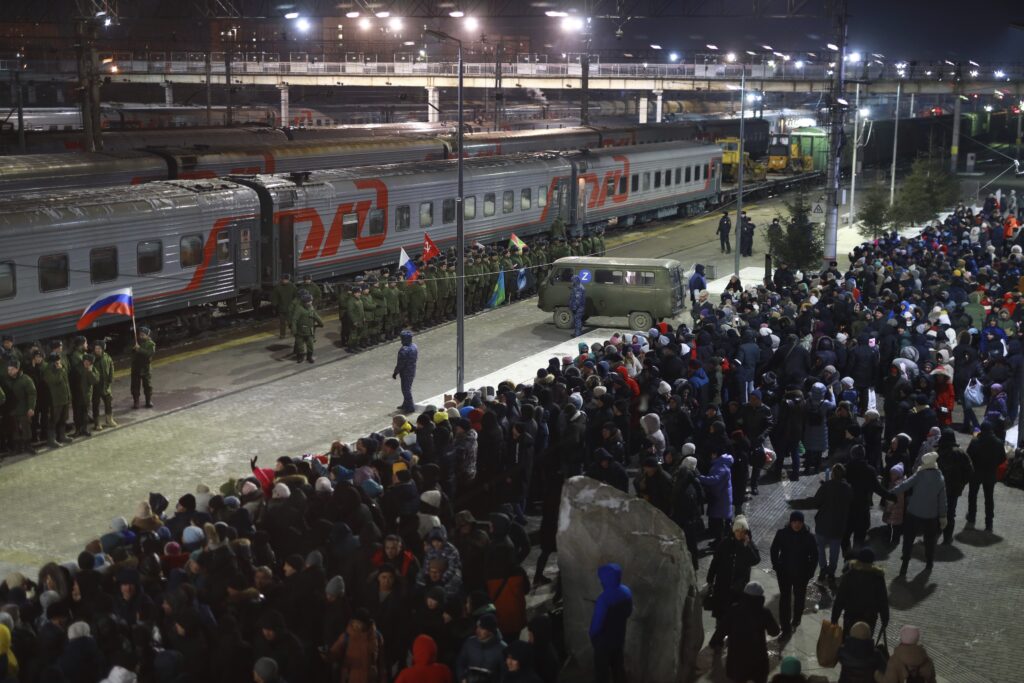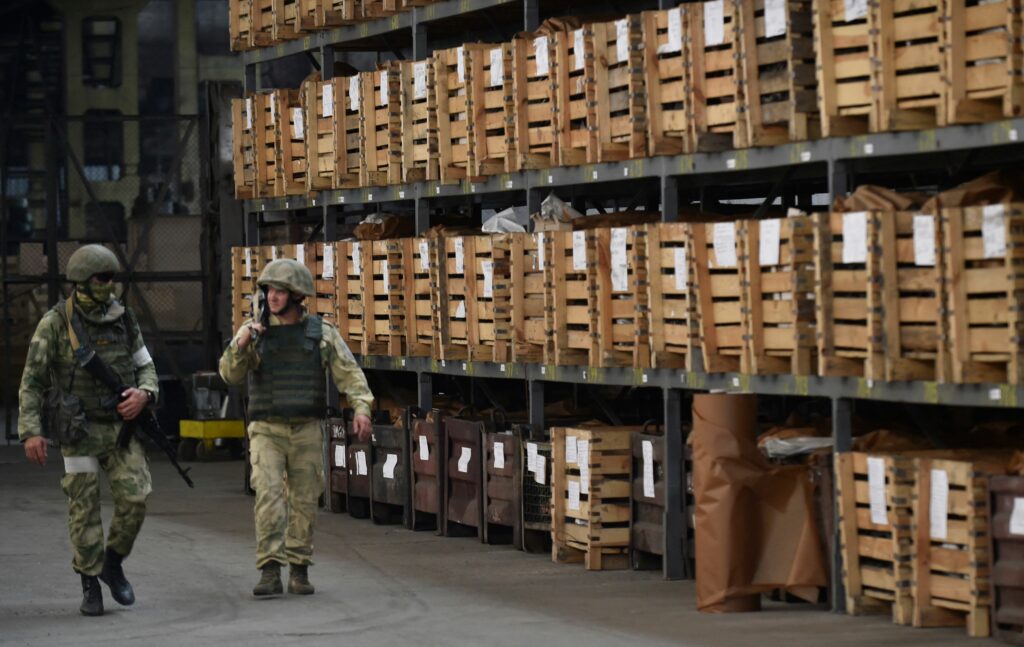Since Russia’s invasion of Ukraine, the Russian elite has been divided into three major groups manifesting different attitudes to the war. The largest of them is the ‘party of silence’, which represents the majority of top federal officials, heads of state corporations and state-related businesses. They are aware of the disastrous economic consequences of the invasion but are unable to stand up to President Vladimir Putin. A small ‘peace party’ is represented by the oligarchs who rose to prominence under Boris Yeltsin. Roman Abramovich, Oleg Deripaska, Mikhail Fridman and Vladimir Lisin go as far as to voice abstract calls for putting an end to the war. The ‘war party’, advocating an escalation of the conflict, is the loudest and most noticeable among them.
The war party is represented by the head of the Chechen Republic, Ramzan Kadyrov; the Deputy Chairman of the Security Council, Dmitry Medvedev; the Chairman of the State Duma, Vyacheslav Volodin; the Director General of Roscosmos, Dmitry Rogozin; the Secretary of the General Council of United Russia, Andrey Turchak; and the businessman Yevgeny Prigozhin. Alexey Gromov, the First Deputy Chief of Staff of the Presidential Executive Office, is also part of the flock. Gromov is not a public figure, but one can get an insight into his beliefs by looking at those close to him, such as RT’s editor-in-chief, Margarita Simonyan, and her subordinates, who take an ultra-hawkish stance. The war party has no hierarchy, and its members are either unrelated or at odds with each other, like Volodin and Turchak. Nevertheless, all of its representatives occupy similar positions in Russia’s pyramid of power, and they are pursuing the same goal hand in hand, with one addressee in mind — Putin. It is worth taking a closer look at this party also because its members clearly aspire to and can achieve career advancement, irrespective of whether Putin’s regime survives or not.
The active and aggressive
The war party proves its militancy in word and deed. Its most radical representatives in the public arena are Kadyrov and Turchak. Both politicians have visited Ukraine: Kadyrov met with the Chechen fighters taking part in the invasion, while Turchak put up Russian flags and victory banners in Ukrainian towns and villages. Neither has shied away from commenting on the war, and both have criticised presidential spokesman Dmitry Peskov for being too indecisive. Both Kadyrov and Turchak can be described as the vanguard of the war party, men who do not hesitate to attack members of the peace party or the party of silence, irrespective of their status or rank. In addition to Peskov, Vladimir Medinsky, an assistant to the President of the Russian Federation and a member of the Russian delegation in negotiations with Ukraine, has also suffered from the attacks of party militants.
The party’s media presence is ensured by Medvedev, Volodin and Rogozin. They regularly make public statements and, in a sense, set the tone for the Russian elite’s new style of self-presentation, which implies the transformation of its representatives into voluntary propagandists, jesters of the presidential court. The speeches by Rogozin, Volodin and Medvedev incite anti-Western sentiments in society. They serve as an additional reinforcement of Putin’s position. Therefore, he feels he can up the ante. Gromov, the Kremlin’s media gatekeeper, acts in a similar manner, but he doesn’t act on his own. Calls for an escalation of the war are voiced by TV hosts and participants as well as RT’s editor-in-chief, Simonyan.
Low prospects and high ambitions
Members of the war party have several traits in common that largely predetermine their behaviour. First and foremost, they have all reached the ceiling in their careers; they stopped climbing the ladder at some point and moved only horizontally. In the pre-war era, they could only slip to laudable but insignificant positions deprived of decision-making powers.
One of the members of the war party, Medvedev, the Deputy Chairman of the Security Council, exemplifies this pattern. In 2012, he was downgraded from the president’s chair to that of prime minister. In 2020, the second-highest official in the country at the time, Medvedev was dismissed and appointed to a hitherto unspecified position as Deputy Chairman of the Security Council. During the 2021 Duma campaign, Medvedev failed to move into the speaker’s chair, a move that was blocked by Putin himself. Now, the Deputy Chairman of the Security Council, who is sailing close to the wind by pre-war standards, may once again become a presidential favourite, the kind of hawk Putin might leave Russia to.
Kadyrov is trapped in the administrative hierarchy. On the one hand, he is afraid to leave his post as the leader of the Chechen Republic, since he is given free rein there. On the other hand, he would obviously not mind getting a decent job in one of the federal law enforcement agencies. He has been prevented real career advancement at the federal level by the siloviki, many of whom were directly involved in the wars in Chechnya. In Putin’s eyes, Kadyrov acquired a new status, that of a warrior who went to the front line and performed his role beautifully. Against this backdrop, the intentions of the siloviki may pale into insignificance.
Before the war, the career outlook for Turchak, the Secretary of the General Council of United Russia and First Deputy Speaker of the Federation Council, was dim. There were rumours that he might become the Governor of St Petersburg, and this seemed to be the pinnacle of his possible career. After the invasion, he equipped himself with aggressive rhetoric and went literally to the front line. Judging by his demeanour, Turchak clearly expects to be promoted, perhaps to the post of First Deputy Chief of Staff — or even Chief of Staff — of the Presidential Executive Office.
Before the war, the position of Chairman of the State Duma was seen as the peak of Volodin’s career. He felt comfortable in that chair; he adjusted the Duma apparatus to his needs and kept United Russia under control. Last spring, however, other candidates for the post of State Duma Chairman emerged, namely Alexey Gordeyev, a former Deputy Prime Minister, and Medvedev himself. Volodin kept his position due to a freeze on promotions, but his role was weakened significantly, and there was no outlook for him to move up the ladder before the war.
The Director General of Roscosmos, Rogozin, had also seen his career stall. He was Deputy Prime Minister before his appointment to the state corporation. Before that, he had been Russia’s permanent representative to NATO. Rogozin has been caught in perpetual horizontal motion, the wheel of life.
Other individuals, such as the businessman Prigozhin, also known as ‘Putin’s chef’, have also been drawn to the front line. Despite myths about his near omnipotence, Prigozhin’s influence is rather limited; he has a range of contracts with state institutions and state-owned corporations for cleaning services, and he provides food supplies to schools. Private military companies allegedly supervised by the businessman (Prigozhin himself denies this) have taken part in conflicts in Africa and Syria, and in 2014−2015 they fought in Donbas. In addition, Prigozhin controls a number of media outlets. He is quite influential but not so influential as businessmen from Putin’s immediate entourage. He is now going to Donbas in the hope of bolstering his gravitas.
Gromov, the First Deputy Chief of Staff of the Presidential Executive Office, media curator and former presidential Press Attaché has also reached his ceiling within the hierarchy.
Moreover, members of the war party seem to have nothing to lose in terms of property either. Their assets are not very impressive, although they are obviously very well off, as proved by the investigations conducted by the Anti-Corruption Foundation with regard to Medvedev, Rogozin and Volodin.
Another important trait manifested by the representatives of the war party is their ambition. All of the above-mentioned politicians and officials long to be promoted or reverse the downward trend. This key trait is closely related to the fact that they have nothing to lose. Unlike members of the party of silence, representatives of the war party are actively pursuing their interests and speaking out, since they have nothing to fear.
Finally, public exposure is also typical of them. Volodin and Rogozin were at one time quite successful public figures and politicians. And they made their careers largely due to publicity. Medvedev enjoyed public exposure during his presidency and premiership. Prigozhin was quite skilful in building his public image as a ‘grey cardinal’ and an ultra-patriot who never has to search for words. Turchak also strives to be a publicly recognised politician. This is what makes the voice of the war party sound so loud.
New figures gradually begin to join the war party: those who previously kept the silence mode. For example, last week the first deputy head of the Presidential Administration, the curator of the political bloc, Sergei Kiriyenko, spoke extensively about «Nazism» and visited the Donbass. Yet another member joins the war party and this is not the end of it.
Win-win game
The members of the war party are playing a win-win game. Regardless of the future political situation in Russia, they will either keep their positions (they would have kept their seats or been downgraded if it were not for the war) or be promoted.
The first and best-case scenario for the war party is the further escalation of hostilities, the snatching of some part of Ukraine by Russia or its proxies (i.e. the Donetsk People’s Republic or Luhansk People’s Republic), and the announcement of ‘victory’ and recognition of those who contributed to this ‘victory’. After the war, the system will inevitably be restructured, the staff promotion process will be restored, and the politicians and officials who have come to the (military or propaganda) forefront will be offered new opportunities. Putin is clearly in a belligerent mood, and most probably those who resonate with his sentiments will win the prize.
In the case of the second scenario, namely a ceasefire and the withdrawal of Russian troops to de facto pre-war positions, members of the war party will not lose their chance of being promoted. Putin’s views will not change anyway — i.e. Ukraine is anti-Russia, and NATO is threatening and encircling us. Politicians who publicly adhere to these views will still enjoy the president’s favours. In addition, warmongering characters have always made Putin look like the ‘only European’ in the Russian government and in Russia as a whole. The head of state and his entourage used to always distance themselves from the radical statements of individual Russian officials and MPs. Creating a militant backdrop against which Putin would look like a peacemaker could also be rewarding.
The third scenario, which so far does not look very likely, involves Putin stepping down as president, peace being made with Ukraine and the Russian regime gradually being democratised. As strange as it may sound, this scenario also opens a window of opportunity for members of the war party in the event that members of the top leadership are not put on trial and lustrated (if they are held accountable, the party of silence will not be spared either). The opposition-minded part of society is inclined to forgive other people’s sins. Some opinion writers, political analysts and journalists have managed to change camps over the years, but their opinions still matter for the audience disloyal to the authorities. Russians vote for former United Russia politicians if they publicly break with the ruling party and run as opposition candidates (for example, the former United Russia politician Yevgeny Urlashov won the 2012 mayoral election in Yaroslavl). It is likely that the members of the war party who publicly renounce their own words (provided that society still remembers those words) will be forgiven and granted an opportunity to continue their political careers. Since the war party consists of experienced politicians, most of them stand a good chance of staying in politics. It is easy to imagine Volodin leading a moderate-conservative party, Rogozin leading a right-wing nationalist project, and Medvedev recalling his former liberal aspirations. The issue of Western sanctions could also be resolved. Members of both the party of silence and the peace party are on sanctions lists. If these restrictions are lifted, they will most likely be lifted for all those who were not directly involved in the war and in giving orders. If sanctions are not lifted, then again, everyone will remain on the lists whether they have spoken in favour of escalation of the conflict or not.
Accordingly, being part of the war party is very beneficial for some Russian officials and politicians. But it must be kept in mind that the path towards escalation is one of personal gain, and not for the benefit of the entire Putin regime, and much less so for the country. While the careers of Volodin and Medvedev in pre-war Russia were in decline, and Turchak had reached the ceiling in his career, further conflict escalation flips the rules and gives them room for growth. Of course, if each of them had been promoted within the old pre-war system, they would have had far greater resources at their disposal, but members of the war party were not given that opportunity. In that sense, escalation is a bird in the hand of warmongering politicians. They have cornered Putin: as long as Russians support the war or are indifferent to it, the president cannot show any weakness. If the war party ups the ante, he must raise the stakes too.
In a sense, the war party increases the chances of the third scenario materialising. The worse the economic situation resulting from the continuation of hostilities, the higher the level of dissatisfaction. For Russia, an escalation of the conflict does not bode well; the more protracted the war, the longer it will take to rebuild the sanctions-stricken economy. The war party appears to be a party of personal gain for its members, but their personal interests are at odds with the interests of the country. From a strategic perspective, the ultra-patriots who are advocating conflict escalation turn out to be anti-patriots.










